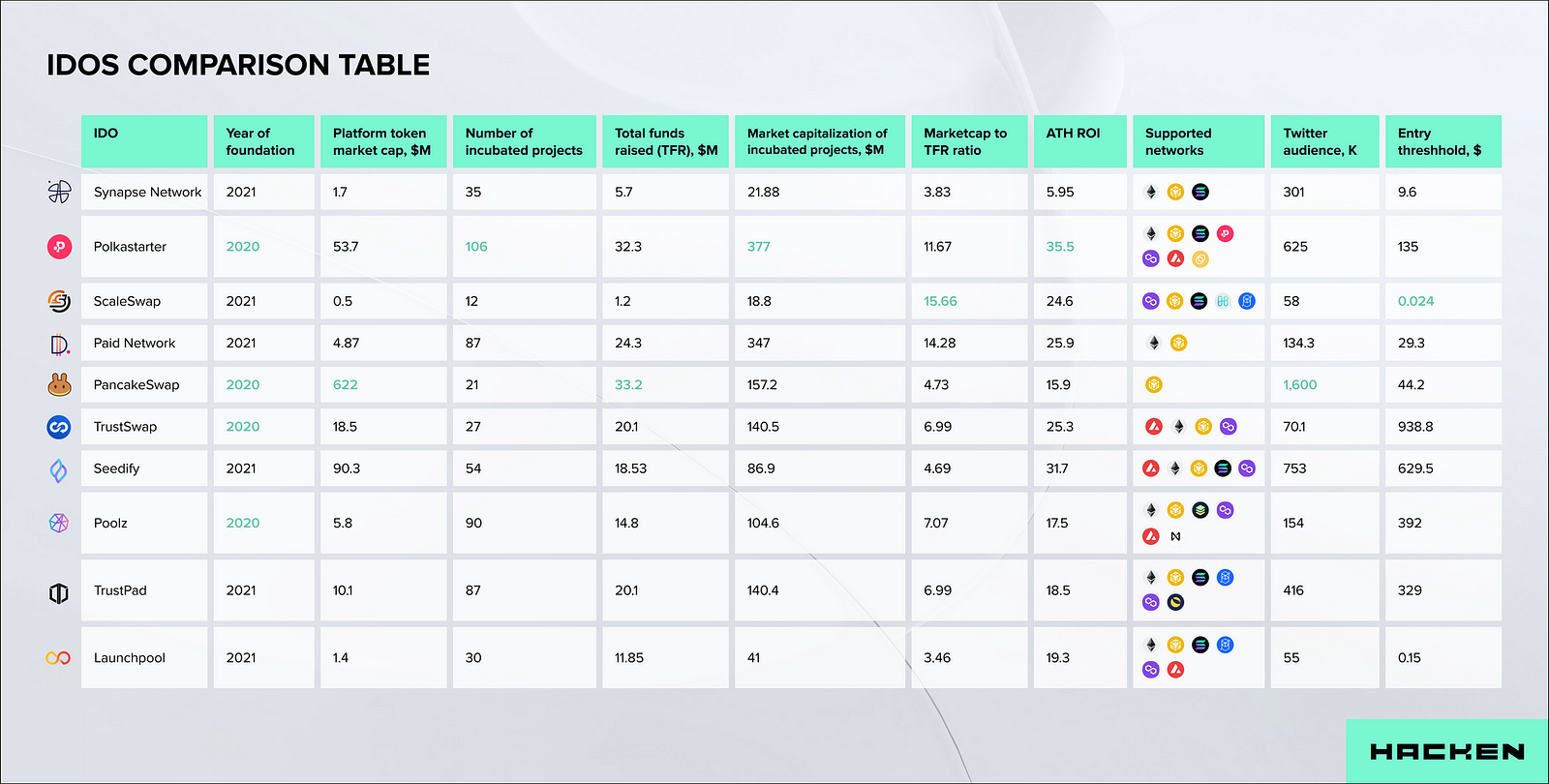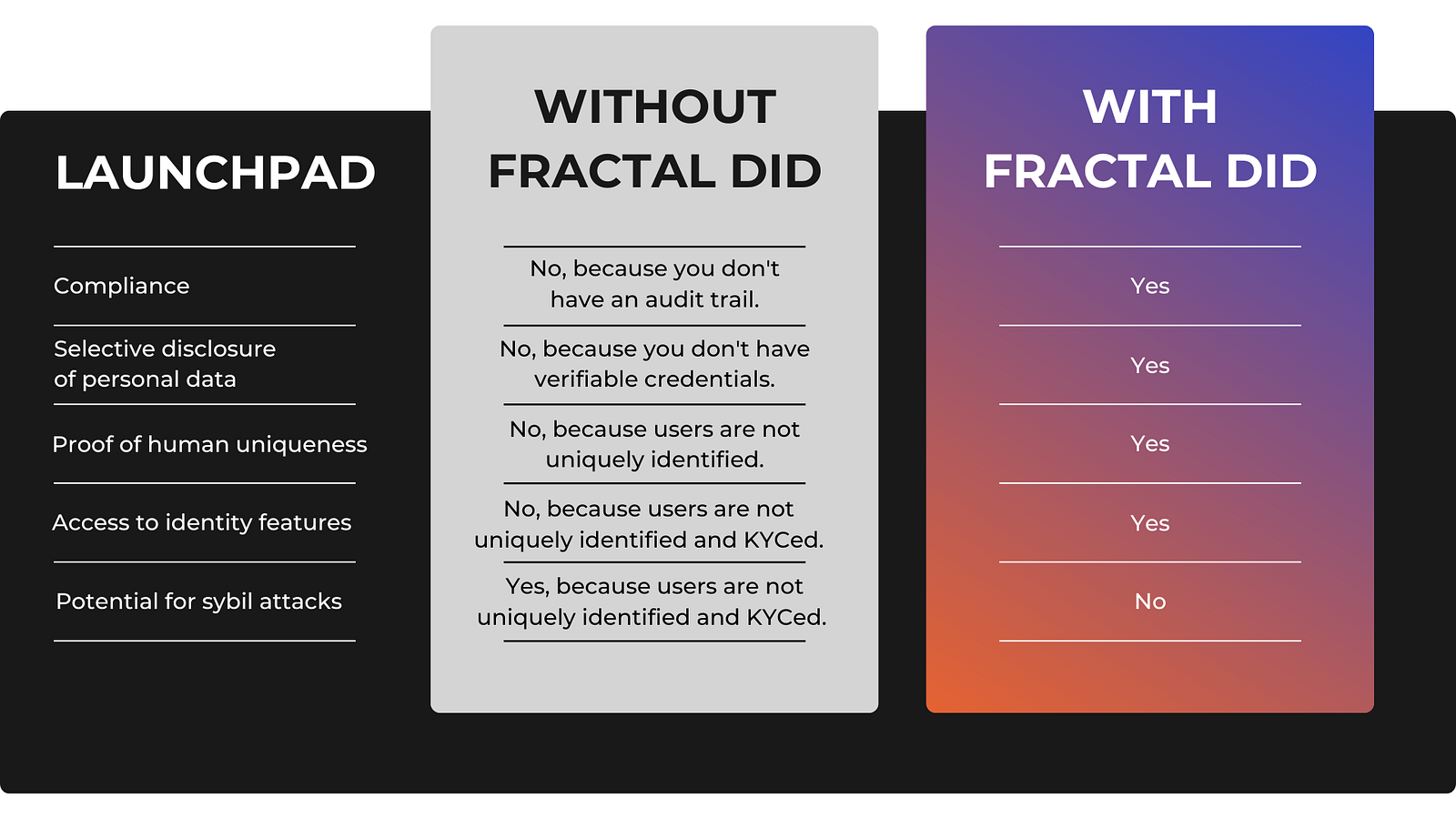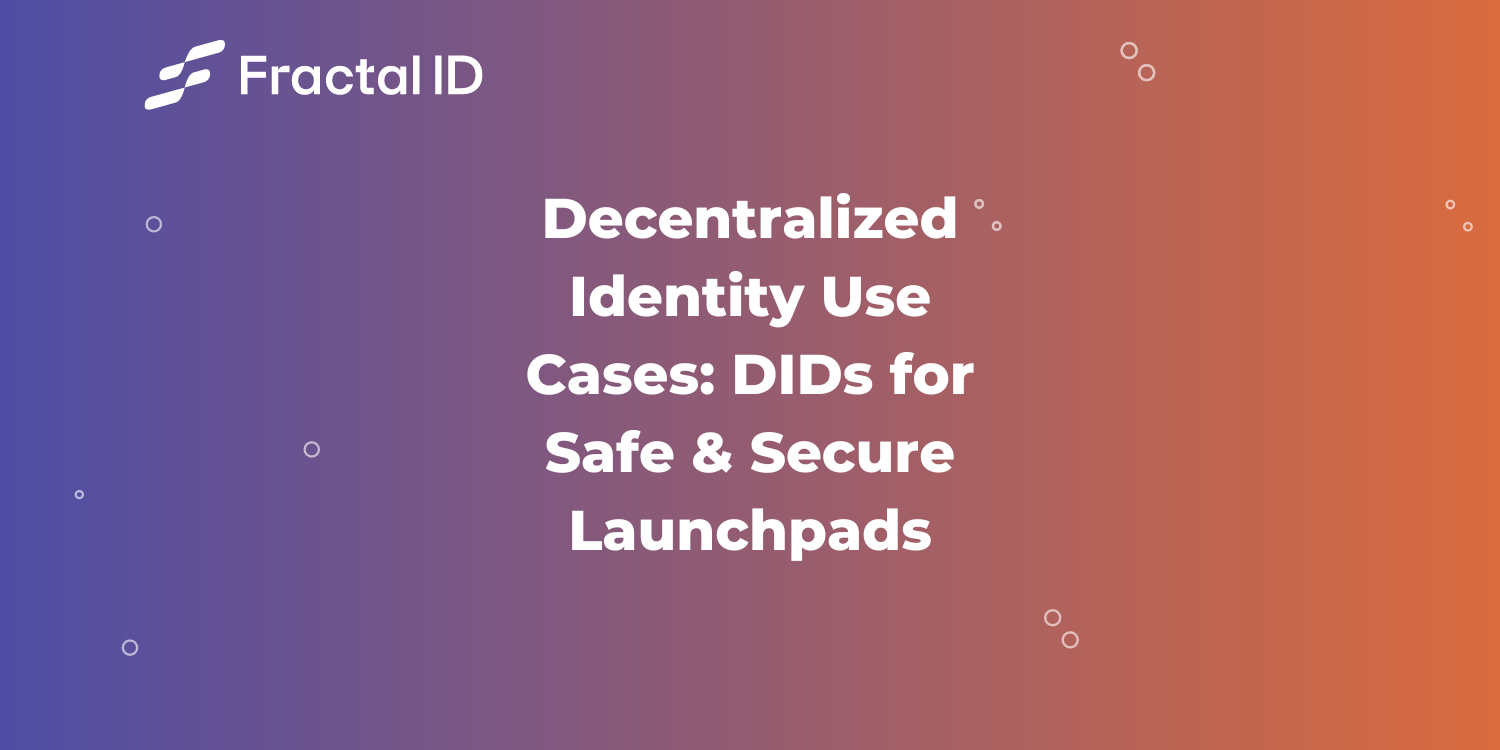Launchpads have been growing in popularity since 2020 and the trading volumes have been increasing as well, reaching ±$36M in 24-hour trading volume.
Launchpads are considered decentralized platforms for new crypto projects to fundraise and investors to find authentic projects to fund. However, due to the pseudonymous nature of most crypto-based projects, launchpads are prone to bot attacks and sybil attacks, and face the risk of facilitating illicit activities or failing to comply with crypto regulations.
In this research article, we explore how KYC and decentralized identity can establish grounds for safe and secure launchpads for startups and investors.
What does launchpad mean in crypto?
Launchpads, also known as crypto incubators, are decentralized platforms where projects can launch new tokens, coins, or protocols.
Launchpads offer a significant opportunity for both startups and investors.
Web3 startups and projects have a difficult time finding traditional investors and venture capital opportunities, making launchpads a better alternative to find web3 communities, enthusiasts, companies, and individuals willing to fund like-minded startups.
Additionally, launchpads like Polkastarter, Seedify, and ScaleSwap among others, provide investors with a space to find novel and innovative web3 projects and offer them early access to projects and tokens at lower prices as they are still in the presale stage.

Why is identity important for launchpads?
The pseudonymous nature of most decentralized platforms, such as launchpads, poses many challenges to users, for example:
- Security risks such as money laundering jeopardize the security of users on the platform, and decrease public trust, evidently compromising the regulatory compliance of the launchpad.
- Bot and sybil attacks can significantly reduce the credibility of project and DApp launches by manipulating votes, and introduce artificial engagement with projects/DApps that brings no value to the project.
- Inability to maintain fairness. Many IDOs tend to allocate a finite amount of tokens per user to use for voting and swapping. However, the inability to ensure that users are unique recreates the sybil attack challenge and threatens the fairness of token distributions.
And although almost all launchpads claim that they are highly secure platforms, it can be difficult to identify the steps undertaken by the platform to ensure security for projects and investors.
Hence, comes the need for an identity layer.
Introducing a KYC layer to launchpads provides a significant increase in the platform’s security as all users can evidently be identified if linked to illicit activities. And if the KYC solution introduced to the platform is a type of decentralized solution such as decentralized identity, the platform will be able to bridge the gap between safety and data-privacy.
Decentralized identity, itself, is an identity verification means where users can have verifiable credentials that point to certain attributes in their identity (e.g. age, residential country, KYC status) which they selectively share with third parties at their consent, and without needing to disclose unnecessary information.
In a nutshell, leveraging decentralized identity for launchpads introduces significant benefits, including:
- Ensuring human uniqueness, which in turn, protects the platforms and its users from bot attacks and sybil attacks.
- Facilitating regulatory compliance as KYC and decentralized identity offer audit trails and track records that protect the privacy of users’ data. Thus, maintaining data integrity and GDPR compliance.
- Establishing grounds for safe growth by enabling users to identify the lawfulness of their counterparties, and helping them make better decisions.
Fractal ID decentralized identity for safer launchpads
Fractal ID is an identity verification platform ranging from human uniqueness for sybil resistance to KYC/AML for regulatory compliance. Fractal ID offers a spectrum of identity verification solutions tailored to the needs of platforms, starting with traditional OAuth all the way towards decentralized identity.
Launchpads that choose to integrate Fractal ID technology into their platforms can establish a safe environment for all their users, bridging the gap between privacy and compliance.

